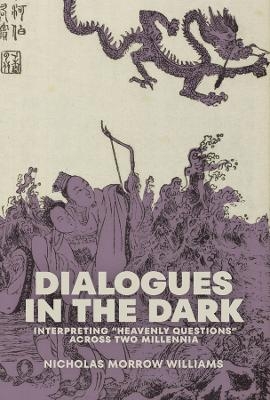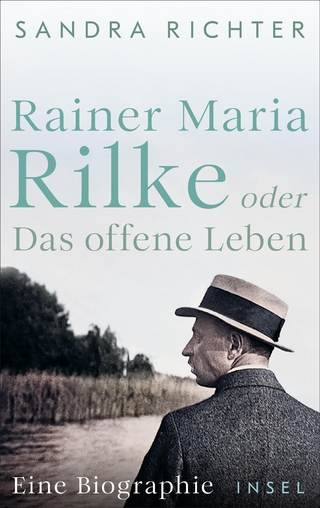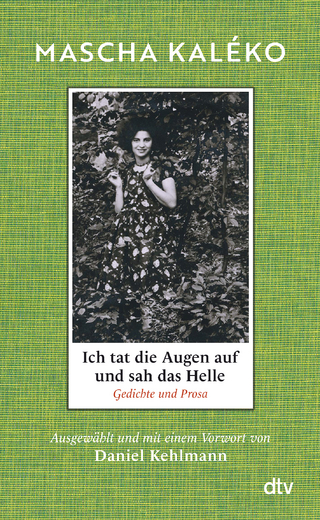
Dialogues in the Dark
Interpreting “Heavenly Questions” across Two Millennia
Seiten
2025
Harvard University Press (Verlag)
9780674299993 (ISBN)
Harvard University Press (Verlag)
9780674299993 (ISBN)
Dialogues in the Dark traces how Chinese readers and scholars since the Han dynasty have variously interpreted the ancient poem “Heavenly Questions” (Tianwen), an enigmatic work attributed to Qu Yuan (fl. ca. 300 BCE). Nicholas Morrow Williams analyzes how the poem’s meaning evolved in different time periods and provides three new translations.
Dialogues in the Dark traces how Chinese readers and scholars since the Han dynasty have variously interpreted the ancient poem “Heavenly Questions” (Tianwen), an enigmatic work attributed to Qu Yuan (fl. ca. 300 BCE). The poem, composed entirely in the form of questions, is an extended inquiry into early Chinese cosmology and history. Over centuries, readers of the poem came to radically different understandings, each providing a unique perspective on its meaning. The poem’s reception history comprises three main stages: first, the commentary compiled by Han scholar Wang Yi (ca. 89–ca. 158); second, the response by Tang poet Liu Zongyuan (773–819); and third, the interpretations developed subsequently by late imperial and modern scholars. Nicholas Morrow Williams analyzes how the poem’s meaning evolved in different time periods and provides three new translations of “Heavenly Questions” to represent the three stages, respectively. The ultimate thesis of this study, inspired by the hermeneutics of Hans-Georg Gadamer, is that this poem is best understood in light of the different interpretations supplied by readers over time in lively dialogues that continue even now.
Dialogues in the Dark traces how Chinese readers and scholars since the Han dynasty have variously interpreted the ancient poem “Heavenly Questions” (Tianwen), an enigmatic work attributed to Qu Yuan (fl. ca. 300 BCE). The poem, composed entirely in the form of questions, is an extended inquiry into early Chinese cosmology and history. Over centuries, readers of the poem came to radically different understandings, each providing a unique perspective on its meaning. The poem’s reception history comprises three main stages: first, the commentary compiled by Han scholar Wang Yi (ca. 89–ca. 158); second, the response by Tang poet Liu Zongyuan (773–819); and third, the interpretations developed subsequently by late imperial and modern scholars. Nicholas Morrow Williams analyzes how the poem’s meaning evolved in different time periods and provides three new translations of “Heavenly Questions” to represent the three stages, respectively. The ultimate thesis of this study, inspired by the hermeneutics of Hans-Georg Gadamer, is that this poem is best understood in light of the different interpretations supplied by readers over time in lively dialogues that continue even now.
Nicholas Morrow Williams is Professor of Chinese at Arizona State University.
| Erscheinungsdatum | 15.08.2025 |
|---|---|
| Reihe/Serie | Harvard-Yenching Institute Monograph Series |
| Zusatzinfo | 3 illus., 1 color illus, 3 tables |
| Verlagsort | Cambridge, Mass |
| Sprache | englisch |
| Maße | 152 x 229 mm |
| Themenwelt | Literatur ► Lyrik / Dramatik ► Lyrik / Gedichte |
| Geisteswissenschaften ► Sprach- / Literaturwissenschaft ► Anglistik / Amerikanistik | |
| Geisteswissenschaften ► Sprach- / Literaturwissenschaft ► Literaturwissenschaft | |
| ISBN-13 | 9780674299993 / 9780674299993 |
| Zustand | Neuware |
| Informationen gemäß Produktsicherheitsverordnung (GPSR) | |
| Haben Sie eine Frage zum Produkt? |
Mehr entdecken
aus dem Bereich
aus dem Bereich
eine Biographie
Buch | Hardcover (2025)
Insel Verlag
CHF 39,90
Gedichte und Prosa. Ausgewählt und mit einem Vorwort von Daniel …
Buch | Hardcover (2024)
dtv Verlagsgesellschaft
CHF 29,90


